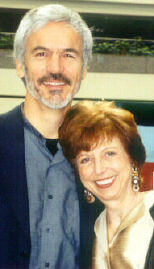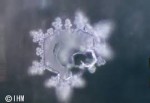 As anyone who has been tracking with me knows, Brian Swimme is at the top of my list of contemporary thinkers. I just came across this, which will give you a sense of why:
As anyone who has been tracking with me knows, Brian Swimme is at the top of my list of contemporary thinkers. I just came across this, which will give you a sense of why:
Awakening to the Universe Story is Part 1 and The Divinization of the Cosmos is Part 2 of an interview from What Is Enlightenment? that came to be after
I heard the editor do a talk and told him about Brian.
This, from the Intro to the interview, is why Brian can matter so much:
In this interview with Brian Swimme, and through the research undertaken for that issue of What Is Enlightenment?, our understanding of the deep time evolutionary perspective that Swimme espouses was profoundly enriched and expanded.
And that helped to shift the philosophical ground here.
There does not seem to be any link to this highly recommended intro,
but here’s my saved text:
Two centuries ago, the German idealist Friedrich Schelling wrote: “History as a whole is a progressive, gradually self- disclosing revelation of the Absolute.” A forerunner of evolutionary theory, Schelling’s philosophical project was
to reconcile the fundamental dualities of life into an all- encompassing and evolving unity. Though he was addressing evolution in the context of human culture, two hundred years later, as a result of the recent discoveries of astrophysics and astronomy, evolution has been elevated to the cosmic realms of the galaxies. It is now commonly known that we live in a vast and evolving universe. While many of us are aware of this, according to mathematical cosmologist Brian Swimme,
our awakening to the truth of that fact may actually represent the most significant shift in human consciousness in two million years.
Swimme is a leading proponent of the “Universe Story,” the deep time developmental perspective that he brings forward in this two-part interview on both his own work and that of French Jesuit priest, paleontologist, and visionary Pierre Teilhard de Chardin. The far-reaching significance of this cosmological perspective is why I’ve selected the spring 2001 interview with Swimme for our fifteenth anniversary issue of What Is Enlightenment?
A specialist in the evolutionary dynamics of the cosmos, Brian Swimme is on a mission to make us aware of the miraculous fourteen-billion-year evolutionary process of which we are a part. He is calling us to “reinvent” ourselves, to redefine what it means to be human in an emergent universe. The paradigm shift we must make, he believes, may be more challenging and more significant than any that has occurred in the course of human history. Evoking the vast panorama of cosmic becoming, he arcs back through deep time and then forward again, dissolving everything we know as real and relatively permanent into
a morphing, unfolding, infinitely creative process. In that,
he challenges us to cognize the fact that we are citizens not just
of our communities or of our nations or even of planet earth. We are citizens of an evolving cosmos. And our conscious awareness of that places us in a far more implicated relationship to ourselves, to the entire web of life on this planet, and to the future.
For Brian Swimme, whose understanding has been deeply influenced by the work of Teilhard de Chardin (1881–1955),
the interface between science and spirituality holds a particularly potent significance. Teilhard believed that the evolving universe and the Divine are one. All dualities and traditional antipathies—between science and religion, matter and spirit, the physical and the metaphysical, God and the universe—are ultimately reconciled and subsumed into the scientifically verifiable reality of cosmic evolution. And that objective reality applies to us human beings as well. As Teilhard said, “I realized that my own poor trifling existence was one with the immensity of all that is and all that is in process of becoming.”
In this interview with Brian Swimme, and through the research undertaken for that issue of What Is Enlightenment?, our understanding of the deep time evolutionary perspective that Swimme espouses was profoundly enriched and expanded. And that helped to shift the philosophical ground here at WIE.
It became increasingly apparent to us that the spirituality of
the twenty-first century has everything to do with the cosmic evolutionary process that we are part and parcel of. Indeed,
as we comprehend our place in a swirling, unfurling universe,
it makes sense that the spiritual quest, the quest to understand who we are and why we are here, would be seen in an entirely new light. But what exactly is that new perspective? And how might it affect the way we relate to our own lives and to human life itself? Those were the questions driving us as we stepped into a fast-moving evolutionary current for Issue 19 and began to peer a little more deeply into what the future of the spirit, and the spirit of the future, might hold.
Here’s my affiliate link to buy The Universe is a Green Dragon,
my favorite book: http://tinyurl.com/28uql4b




 Follow
Follow








